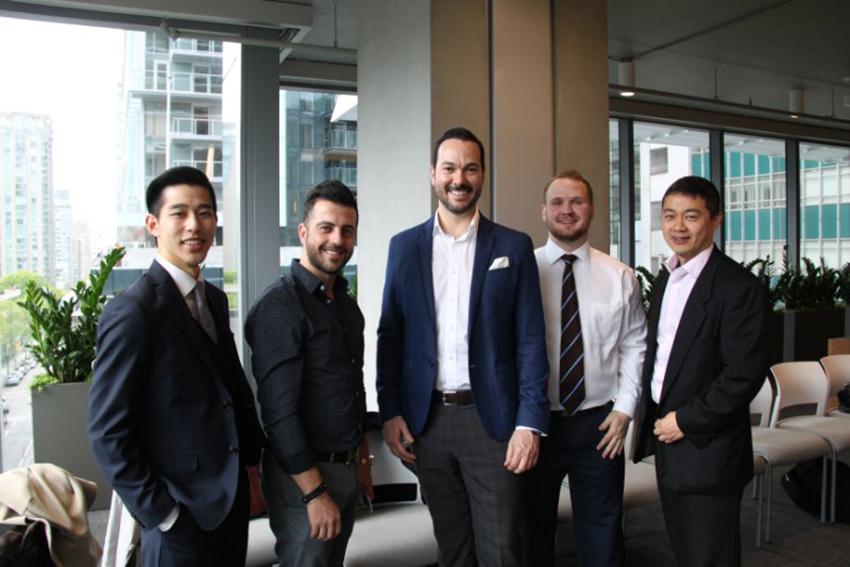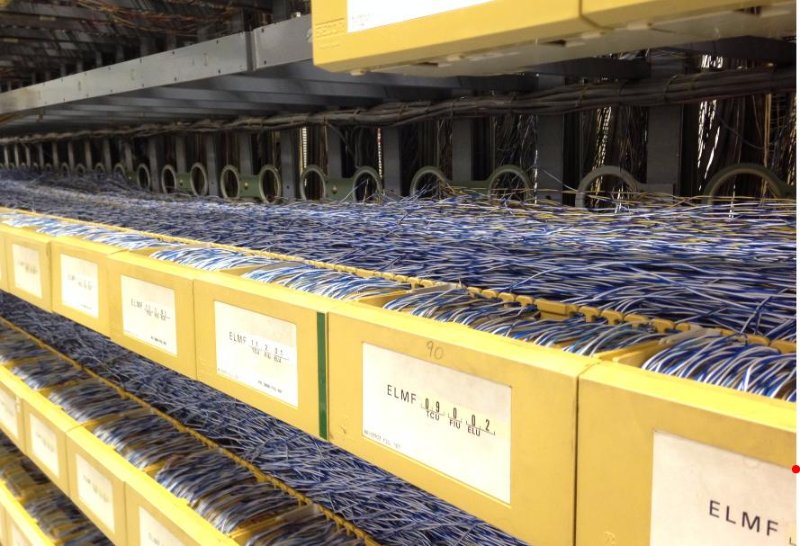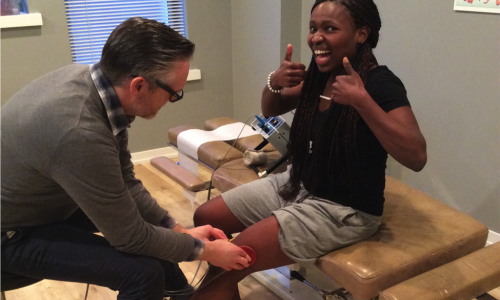
Having done my first co-op term with TELUS, I never imagined I’d ever work for a corporation this size. In fact, I used to imagine I’d be a doctor, or a radiologist, or even a garbage man (albeit that was when I was eight). But, there I was, one of forty thousand employees at a company that sits in the top half of Forbes’ Global 2000 list. Fast forward eight months, I’ve learned so much in such a short time that it would be criminal not to share! So here are nine of my most important tips to get the most of your co-op work term.
1. Land the Interview
Having sat on the opposite end of the table conducting interviews with aspiring co-op hopefuls, it’s definitely not easy to successfully talk your way through every question. There is a common misconception that you need to have a crazy amount of experience, or possess a broad range of skills in order to land a job. Don’t get me wrong, to a certain extent, you do require experience and skills. But something that hiring managers won’t tell you, is that a huge portion of the criteria is team fit. You can be the most intelligent and experienced person in the room, but if you aren’t personable, can’t talk about your passions and aspirations, or have a hard time connecting with potential colleagues on a personal level, the chances of you getting hired drop significantly. Of course, this varies company to company, but as a general tip, know your audience and ensure that your core values and personality align with the company you apply for. If they do not, that position is probably not the right fit for you. Find out as much as you can about your interviewer(s), and show them your personality. It will go a long way.
2. Create Detailed Goals With Your Leader (Supervisor/Mentor)
Get into the habit of creating SMART (Specific, Measurable, Achievable, Realistic, Time-bound) goals every three to five months (and not just because it’s required by co-op!). In order to maximize the value of your work term, create these goals alongside your leader with specific targets, a method to achieve it, and a way to determine success. In addition to providing the necessary guidance, your leader has the experience and knowledge to help you succeed. When I sat down with my supervisor for the first time, he suggested I focus on developing two useful skills that he knew would benefit me greatly in my position: learning to facilitating an effective meeting and giving a presentation by telling a story (storyboarding). On top of that, he helped me develop my broad, generic goals into specific, attainable targets, with ways to achieve them. Remember, your leader is there to support and empower you.
3. Make Friends
It’s common to want to “expand your network” or add as many “meaningful connections” on LinkedIn as possible (I’m guilty of that). Your network can help you accomplish certain tasks in your day-to-day, but then what? Unless these connections know you as a person, just adding them on LinkedIn can only go so far. It’s important to create relationships in the workplace that reach a deeper level than just co-workers. What happens after you leave the company, or when you’re having an awful day and want to talk to someone who will understand your struggles? For me, without those people who I can talk to or joke with, my work would have become less enjoyable and I would have found it difficult to look forward to my job every day. On top of that, making friends at work right now could lead to other opportunities in the future. Who knows, maybe that Business Analyst I talked to every week about why Ted Cruz would actually be a worse presidential candidate than Donald Trump, could become a VP one day.
4. Leverage Other People’s Strengths to Compensate for Your Weaknesses
One of the best things about working on a team are the people. Along with having friends to share experiences and trade stories with, you have an extremely vast and diverse pool of skillsets available to help. One of my co-workers once told me that data analysis was not her strong suit. When she brought up the idea of taking courses and learning more about different analysis and reporting techniques to her manager, he was quick to suggest another alternative: that she delegate and use another co-worker’s strength in analysis and reporting. By doing that, she could focus her time on what she excels at. Maybe you don’t know how to use pivot tables or VLOOKUP functions, and as helpful as Google is, there are people on your team that do. You don’t need to be an expert on everything so when needed, ask for help. To ensure that you continue to broaden your skillset rather than always delegating tasks, ask an expert that you’re comfortable with and set up a one-on-one so they can give you a crash course of the basic skills you may lack.
5. Keep Track of Your Accomplishments
Whenever I reflect on my co-op experience, I’m confident I’ve learned and accomplished a lot. A big part of this is being able to remember my various tasks and responsibilities, having tracked my work. My action register (I used Robert McQuaig's Action Register to keep track of my work) gave me a line-by-line view of the progression I made in my work, providing information on complexity, importance and completion. Even after my co-op term ended, I can still open up my file and recall my projects from start to finish: the different data analyses I created, and appreciate all the new skills I made along the way. Keeping track of my duties also allowed me to stay organized and prioritize my time accordingly, so I didn’t stress as much, nor as often. Additionally, tracking my accomplishments has also helped me when writing cover letters, providing examples in an interview, and creating and reviewing goals. After reflecting on everything that’s happened over my eight-month work term, I feel fulfilled knowing that my contributions have not only made an impact on my team’s progress, but have also greatly contributed to my learning experience as a co-op student.
6. Go Above and Beyond the Confines of Your Role
I used to be very afraid of stepping outside of my comfort zone, but I knew that if I didn’t, I’d never grow as an individual. So I made it my mission to take the leap and get comfortable with being uncomfortable. My first step involved setting up virtual coffee chats to talk to people outside my own team (strangers!) and learn about their job. I could expand my company knowledge, grow my network, and discover what I liked and disliked all at the same time! Subsequent initiatives that made me uncomfortable (initially) saw me sit-in with two call centre agents, listening to them talk to customers and deal with situations. I also “rode-along” with a field technician while he installed services and diagnosed customer problems. I even looked into one of TELUS’ green metal cabinets along the sides of the street and learned a bit more about how peoples’ homes are connected to the Internet. The benefit was not only experiencing these different aspects within TELUS, but experiencing things outside of the responsibilities of my own role. Further, that I self-organized these meetings that expanded my scope of knowledge, helped me connect the dots between why I do my work and how it may affect the broader organization.

7. Take on More Responsibility Than You’re Used To (but Don’t Burn Out)
In keeping with the theme of getting comfortable with being uncomfortable, I encourage you to take on more than you’re used to handling! Just like at the gym (or so I assume since I don’t exactly go to the gym regularly), improvement can’t happen unless you push past your limits. It’s so important to break past personal boundaries, because in doing so, you’ll discover what you can and cannot do. While working at TELUS, one of my projects was to develop a 50-slide PowerPoint deck, and conduct the data analysis that went with it. What added to its magnitude was that this was to be presented to our Executive Leadership Team, only a level or two below the CEO. Is it me or did it just get hot in here? It was more work than I had ever taken on, and I loved the responsibility—it was exciting. I had to manage my time effectively and saw the process from the start, right until the successful finish. However, I came very close to burning out: feeling tired and lethargic often, even at work. It is definitely something to be cautious of, but ensuring you balance personal time with work time, avoid taking work home, and taking the initiative to purposely unwind each week will help prevent burnout.
8. Dress Well
While one aspect of getting the most of a co-op term is playing the part of an intelligent, intuitive student, another aspect is looking the part. I once saw someone at an office wearing (and I kid you not) sweats, a hoodie, a snapback, socks and flip-flops. Beside him was a man wearing a nice pair of slacks with a form-fitting blazer. Hypothetically, you’re a recruiter seeing these guys for the first time. Who do you hire? On top of having a good reputation, looking professional and representing your company as an ambassador, you’re also representing yourself and your personal brand (Tip 8.1: if you’re a guy, invest in some quality socks. Seriously, an interesting sock game adds character and can be a great conversation piece too!).
9. Follow TELUS’ Core Values, Even if You Don’t Associate With TELUS
<insert shameless advertising plug here>. All jokes aside, if there are any core values of a company that have resonated with me throughout my career, it would be TELUS’, and it’s not because I’ve worked with the company either. Their basic values can stand alone as an important guideline for anyone continuously aspiring to be their best self. They are ideal for personal and professional growth. Following these values, especially embracing change, initiating opportunity, and developing a passion for growth resonated with me. They pushed me to want to see myself develop personally and professionally, to which I can happily say that I did. Below are the four core values of TELUS:
-
We embrace change and initiate opportunity
-
We have a passion for growth
-
We believe in spirited teamwork
-
We have the courage to innovate
And that’s it. Nine tips to get the most not only from a co-op work term, but any other work experience. My eight-month co-op with TELUS has profoundly impacted me. I’ve gained invaluable experience, developed a greater understanding of myself, learned about what I do and do not like, and it’s introduced me to people who have taught me so much, in such little time. As a student of the co-op program, I can take comfort knowing that I’m not in the “real-world” yet, but that I’m building on the skills and attributes that will become highly valuable once I do graduate. Wherever you’re at in your co-op or career journey, know that there are countless resources and people to draw help from, and it’s important not to lose sight of that.
Thanks for reading!












